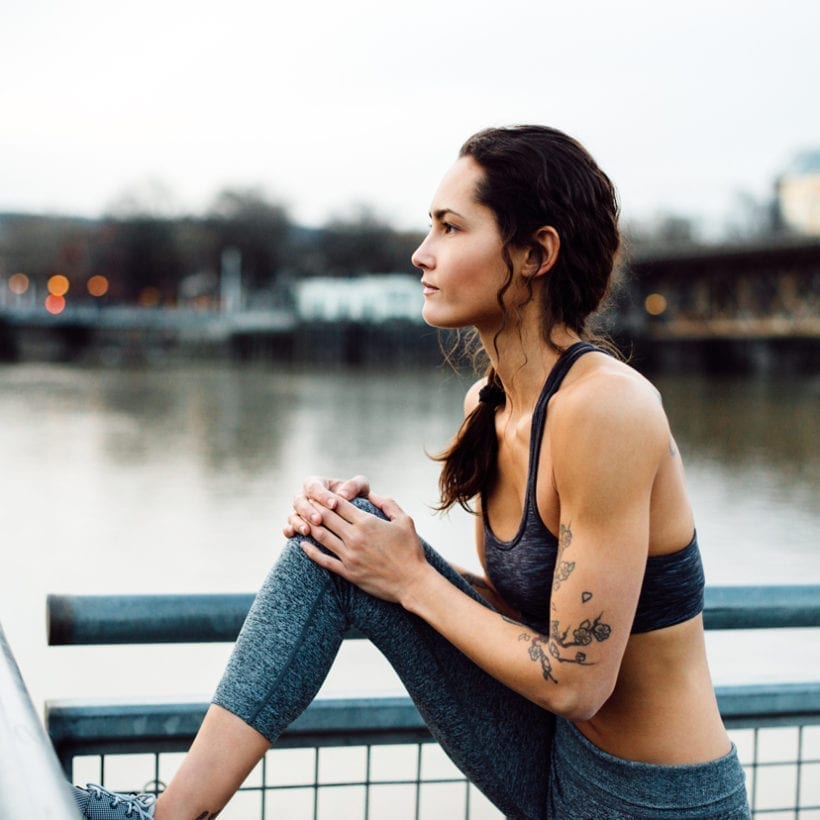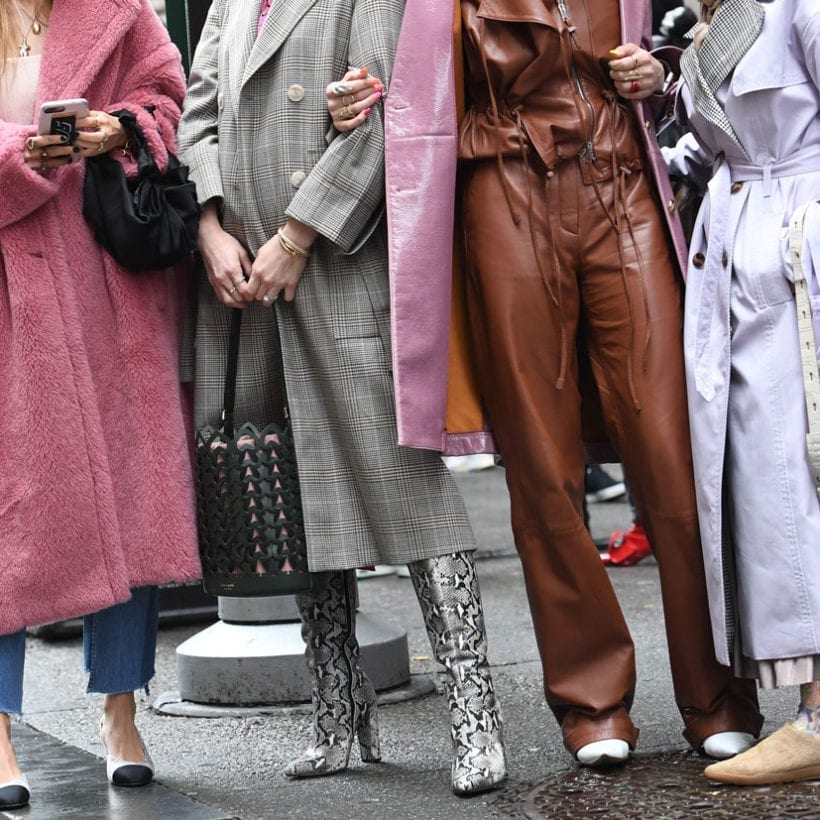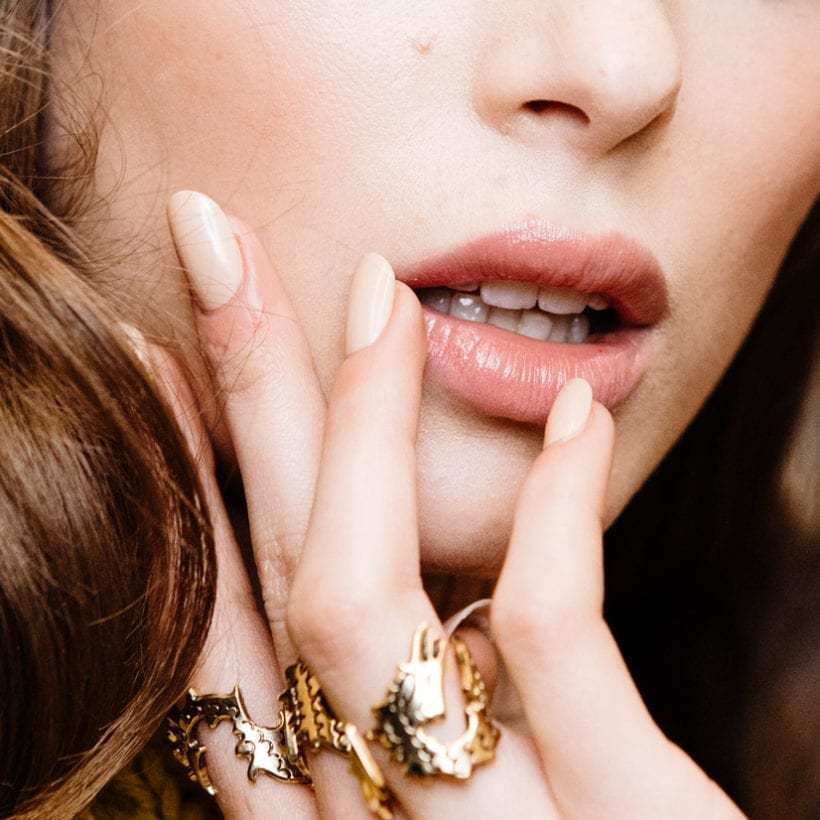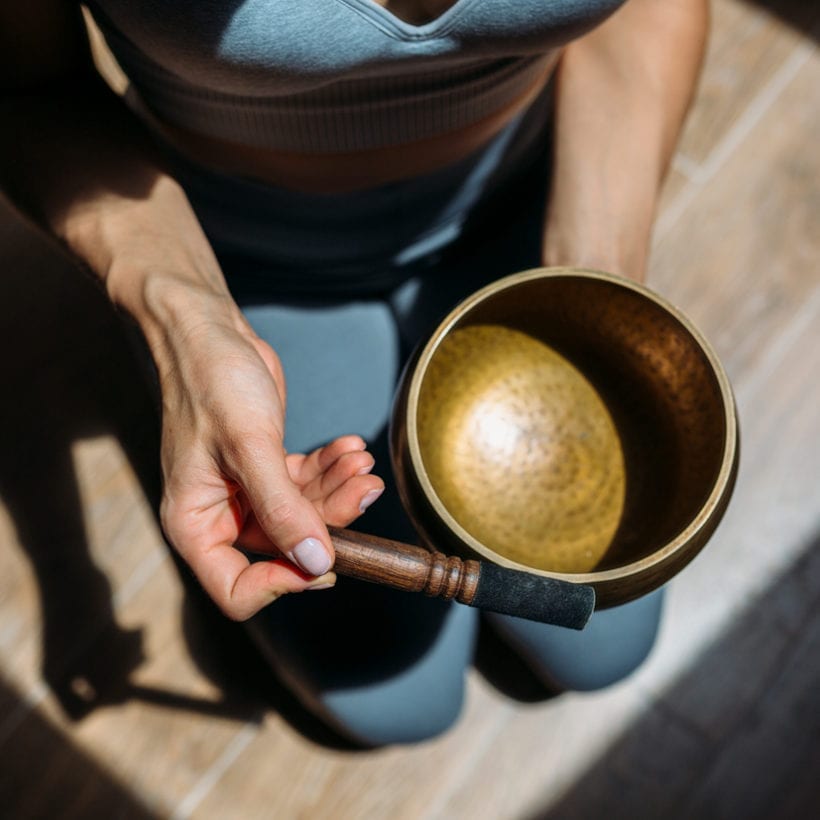This is not your typical post-Halloween skincare recovery piece. Though it is likely your makeup consisting of fake blood, body paint and pigmented cream makeup will call for a little crisis management later, here we are taking on a lesser-known rough skin culprit: stress and anxiety.
On Oct. 4, news broke all over the internet that a woman’s zombie makeup had caused her so much distress that she was rushed to the hospital with an anxiety attack, where hospital staff later mistook her makeup for a real injury. While Halloween trick-or-treaters mean well and the act of dressing up can be fun, gory looks and creepy creatures can still induce an acute stress reaction in our bodies, which can show up as skin flare-ups, red patches, acne, and overall, wreak havoc on our skin — if not our entire mental command. Here is what you need to know about the connection between anxiety and your skin.
What Does Fear Do to Our Bodies and Skin?
“Being in constant ‘fight or flight’ mode… can actually age our skin.”
When it comes to sudden fear like that associated with haunted houses, candy corn, or scary makeup, our bodies activate the sympathetic nervous system, which is responsible for our “fight or flight” reaction. For the most part, this reaction means well and helps us out of sticky situations by releasing adrenaline immediately. However, this system will focus on protecting our internal organs, redirecting a lot of our blood flow to organs like our heart and lungs, while decreasing blood flow to the skin, thanks to rapid heart rate vasoconstriction. “This is why being in constant ‘fight or flight’ mode can cause us to look and feel more tired,” says Alissia Zenhausern, NMD, a naturopathic doctor at NMD Wellness of Scottsdale. “It can actually age our skin.” Blood is extremely important in delivering key nutrients to the skin, so a decreased supply to the skin results in a sallow, dull complexion.
What’s more, prolonged exposure to stress also has an adverse effect on our hormones, especially cortisol, which, under real duress, helps you to sustain the stress. However, cortisol up-regulation can work like an androgen — which are a group of hormones that play a role in male traits and reproductive activity — or steroid. “These effects cause oil glands to become more productive and when blocked, they can manifest as breakouts and cystic acne,” says Anna Guanche, M.D., a board-certified dermatologist at Bella Skin Institute in California.
Additionally, worsening of acne, eczema, alopecia areata, psoriasis and even proneness to skin cancer are exacerbated by stress. “Severe stress dips the immune system, as the body goes into emergency mode, thus decreasing your body’s ability to do surveillance on abnormal cells and growths,” says Guanche.
What Can You Do About it?
Even if you do not have skin flare-ups — or simply rashes or redness — stress management is super important when it comes to preventing premature aging. However, it is more an inside job than it is an outside one. If it is a particular skin flare-up like rosacea or psoriasis due a weakened immune system, look for the products that treat the specific condition, but outside of that, getting to the root of the cause of your anxiety will be the best way to prevent or reduce flare-ups or adverse skin reactions. “Start becoming aware of your stress and work on daily stress management techniques like meditation,” says Zenhausern. “My favorite app is Insight Timer.” Other measures you can take include acupuncture, listening to calming music, taking a hot bath, breath work, exercise or getting a massage. “Many people, when they are anxious, their skin turns red,” says Debra Jaliman, M.D., a board-certified dermatologist in New York City. “I recommend products with green tea and niacinamide.”
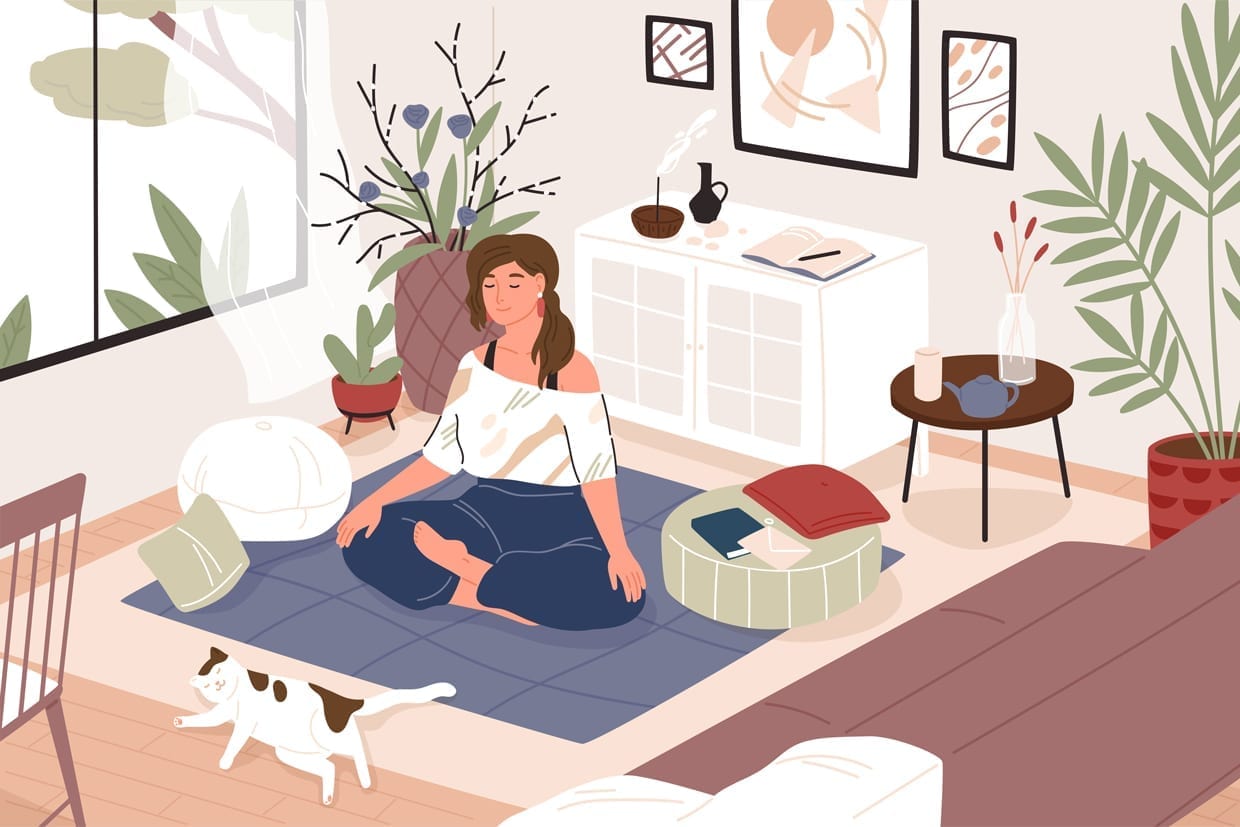
The bottom line is that if you become better aware that these stressors exist or you will be exposed to them, you can be better equipped at handling their toll, thus preventing adverse skin reactions. After all, Halloween or not, stress is a part of life, what matters is how you handle it.
We only recommend products we have independently researched, tested, and loved. If you purchase a product found through our links, Sunday Edit may earn an affiliate commission.




